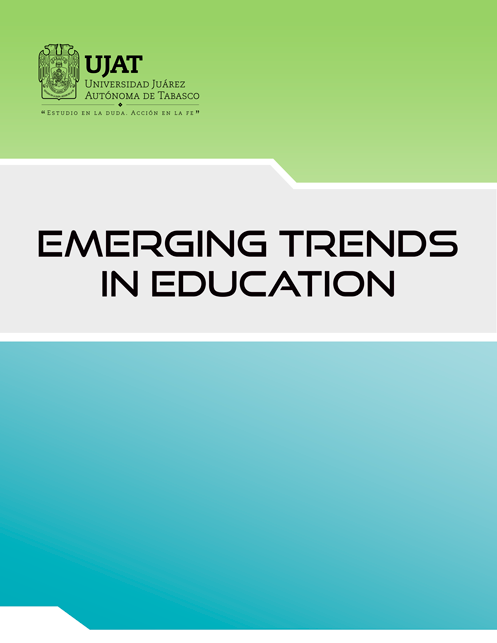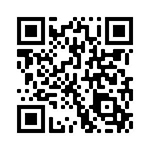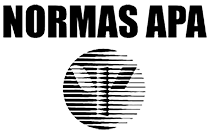Description of the change laboratory: A proposal for learning to learn in the school organization.
DOI:
https://doi.org/10.19136/etie.a5n9.5059Abstract
It is discussed, at a descriptive and exploratory level, how the Change Laboratory (LC) can contribute to the development of Learning to Learn (L2L) in the school organization. The relevance of developing this competence to face rapidly changing and increasingly volatile educational contexts is pointed out. Given that teaching L2L involves skills that involve different levels of collective activity, LC is proposed as a coherent model to develop this competence from an organizational perspective. The intervention is proposed as an arena for negotiation and renewal of meanings oriented to the increase of L2L from the knowledge and experimentation of its components. The aim of the paper is to answer: Which training models contribute to the reformulation of professional practices in order to promote L2L in the school? How is it possible to contribute to the conformation of a repertoire of educational practices coherent with the values and attributes of such competence? The article subscribes principles of activity theory through the notions of activity system and expansive learning, useful to approach the process of organizational learning in front of the qualitative transformation of school work.
Keywords: Learning to Learn, Change Laboratory, formative intervention, activity theory, description.
References
Ajello, A. M., & Torti, D. (2019). Imparare a imparare come competenza chiave di cittadinanza e come soft skill. Scuola democratica, learning for democracy, 1, 63-82.
Bata, P., Alistair, N., & David, A. (2022). Activity Theory as a Tool for Understanding Complexities in Extended Organizations. Science Journal of Business and Management, 10 (1), 47-54.
Brito, H. (2017). Habla resistiva e intervención formativa en una organización escolar. Polis: Investigación y Análisis Sociopolítico y Psicosocial, 13 (2), 73-105.
Brito, H. (2019). Teoría de la actividad, intervención formativa y contexto escolar. Revista Diversa. Escritos pedagógicos, 2 (2-3), 09-27.
Brito, H. (2020). Intervención formativa y seguimientos observacionales con directivos de un hospital en México. Revista de Psicología y Ciencias del Comportamiento, 11 (2), pp. 19-38.
Brito, H. (2021). Apprendere per il lavoro o per la vita? Analisi preliminare di un’intervista a docenti su Apprendere ad Apprendere in Italia e Spagna. In P. Falzetti (Ed.). I dati IN- VALSI come strumento per migliorare e valutare le competenze trasversali. IV Seminario “I dati INVALSI: uno strumento per la ricerca e la didattica (pp. 49-67). Franco Angeli.
Brito, H., Alby, F., & Zucchermaglio, C. (2021). Group membership and social identities in a formative intervention in a Mexican hospital. Frontiers in Psychology. Organizational Psychology, 12 (786054).
Brito, H., Stringher, C., Huerta, & Scrocca, F. (2021). Pratiche docenti sull’Apprendere ad Apprendere: attività e orientamenti. In C. Stringher (Ed). Apprendere ad apprendere in prospettiva socioculturale (pp. 119-145). Franco Angeli.
Cárdenas, V., Silva, I., & Brito, H. (2021). Apprendere ad Apprendere in Messico dalla scuola dell’infanzia alla secondaria di secondo grado. In C. Stringher (Ed). Apprendere ad apprendere in prospettiva socioculturale (pp. 211-226). Franco Angeli.
Castro, W. (2018). A Change Laboratory professional development intervention to motivate university teachers to identify and overcome barriers to the integration of ICT. Outlines. Critical Practice Studies, 18 (1), 67-90.
Claxton, G. (2014). La escuela como aprendizaje epistémico: el caso de construyendo el poder para el aprendizaje. Infancia y Aprendizaje. 37 (2), 227-247. https://doi.org/h3mv
Clot, Y., & Kostulski, K. (2011). Intervening for transforming: The horizon of action in the Clinic of Activity. Theory y Psychology, 21 (5), 681–696.
Colombo, M., Curone, G., Alcover, S., Lombardo, E., Martínez Fron- tera, L., & Pabago, G. (2016, Junio). Avance del ciclo expansivo en un equipo de docentes universitarios para la promoción de habilidades argumentativas en la lecto-escritura académica [Ponencia]. VIII Congreso Internacional de Psicología y Educación, Alicante, España.
Comisión Europea. (2007). Competencias clave para el aprendiza- je permanente. Un marco de referencia europeo. Luxemburgo: Oficina de Publicaciones Oficiales de las https://bit.ly/3HFhEn4
Comisión Europea. (2018). Proposal for a council recommendation on key competences for lifelong learning. Official Journal of the European Union. C 189/7. https://bit.ly/3OynYPJ
Deakin Crick, R., Stringher, C., & Ren, K. (Ed.) (2014). Learning to learn. International perspectives from theory and practice. Rout- ledge.
Diao, C., Zhou, X, Mao, Q., & Hong, J. (2022). The Development of Transformative Agency of Teachers in Teaching Research Activities in China. Frontiers in Psychology, 12:724175.
Engeström, Y. (2001). Expansive Learning at Work: Toward an activity theoretical reconceptualization. Journal of Education and Work, 14 (1), 133-156.
Engeström, Y. (2011). From design experiments to formative interventions. Theory y Psychology, 21 (5), 598-628.
Engeström, Y. (2015). Learning by expanding: An activity-theoretical approach to developmental research (2da Ed.). Cambridge University Press.
Engeström, Y., Virkkunen, J., Helle, M., Pihlaja, J., & Poikela, R. (1996). Change laboratory as a tool for transforming work. Lifelong Learning in Europe, 1 (2), 10-17.
Engeström, Y., & Sannino, A. (2010). Studies of expansive learning: Foundations, findings and future challenges. Educational Research Review, 5, 1-24.
Engeström, Y., y Sannino, A. (2016). El aprendizaje expansivo en movimiento: aportaciones de la investigación en curso. Infancia y Aprendizaje / Journal for the Study of Education and Development. 39 (3), 17-33. https://bit.ly/3zTLrXx
Garraway, J., Cupido, X., Dippenaar, H., Mntuyedwa, V., Ndlovu, N., Pinto, A. y Purcell van Graan, J. (2021). The Change Laboratory as an approach to harnessing conversation for academic development. International Journal for Academic Development. https://doi.org/h3m4
Gonzales-Miranda, D. R., Ocampo-Salazar, C. A., & Gentilin, M., (2018). Organizational Studies in Latin America. A Literature Review (2000-2014). Innovar, 28 (67), 89-109.
Guberman, A., & Smith, K. (Eds.). (2021). Expansive Learning in Teacher Education. Frontiers Media SA.
Haapasaari, A., Engeström, Y., & Kerosuo, H. (2016). The emergence of learners’ transformative agency in a Change Laboratory intervention. Journal of Education and Work, 29 (2), 232-262.
Hager P., & Halliday, J. (2006). Recovering Informal Learning: Wisdom, Judgment and Community (Vol. 7). Springer.
Hautamäki, J., & Kupiainen, S. (2014). Learning to learn in Finland. Theory and policy, research and practice. En R. Deakin Crick, C. Stringher & K. Ren (Eds.), Learning to learn International perspective from theory and practice (pp. 226-248). Routledge.
Ho, J., Hung, D., Chua, P. H., & Binte Munir, N. (2022). Integrating Distributed with Ecological Leadership: Through the Lens of Activity Theory. Educational Management Administration & Leadership, 7(5), 1-21.
Holzman, L. (2006). Lev Vygotsky and the new performative psychology: some implications for business and organizations. En D. M. Hosking & S. McNamee (Eds.). The social construction of organization (pp. 187-213). Liber - Copenhagen Business School Press.
Jones, A., & Kessler, M. (2020) Teachers’ Emotion and Identity Work During a Pandemic. Frontiers in Education, 5 (583775).
Laitinen, A., Sannino, A., & Engeström, Y. (2016). From controlled experiments to formative interventions in studies of agency: methodological considerations. Educação. 39 (Núm. Esp.), 14-23.
Lawless., A., & Willocks, K. (2021): The wicked problem of employee wellbeing: creating safe space within a change laboratory. Action Learning: Research and Practice. https://doi.org/gkbshk
Marcuccio, M. (2016). Imparare a imparare nei contesti scolastici. Prospettive e sfide per l’innovazione didattica. Armando editore.
Montoro, C. (2016). Learn or earn? Making sense of language teaching and learning at a Mexican university through a Change Laboratory intervention. Learning, Culture and Social Interaction, (11), 48-57.
Organización de las Naciones Unidas para la Educación, la Cien- cia y la Cultural [UNESCO]. (2013). Toward Universal Learning: What Every Child Should Learn. Reports No. 1. UNESCO Institute for Statistics and the Center for Universal Education at the Brookings Institution.
Organización para la Cooperación y Desarrollo Económico [OCDE]. (2009). Informe PISA 2009. Aprendiendo a aprender (Vol. III). OCDE. https://bit.ly/3Odsi71
Patera, S. (2018). Learning to learn in Latin America: A quali-quantitative comparative analysis of national curricoli and educational systems of compulsory education in Latin America. Working Paper INVALSI N. 32/2018, 1-56.
Pereira-Querol, M. A., Beltran, S. L., Montoro, C., Valenzuela, I., Castro, W., Tresserras, E., & Esteve, O. (2019). Intervenciones formativas en educación y aprendizaje en el trabajo: aplicaciones del Laboratorio de Cambio en Iberoamérica. Revista Internacional de Educación y Aprendizaje, 7 (2), 83-96.
Persson, J., Svensson, A., Lindén, I., Kylén, S., & Hägglin, C. (2022). Aspects of Expansive Learning in the Context of Healthy Ageing. A Formative Intervention between Dental Care and Municipal Healthcare. International Journal of Environmental Research and Public Health, 19(1089).
Sannino, A. (2010). Teachers’ talk of experiencing: Conflict, resistance and agency. Teaching and Teacher Education, 26, 838- 844.
Stringher C. (2008). Definizioni e modelli dell’apprendere ad apprendere per il lifelong learning. In Alberici A (Ed.), La possibilità di cambiare. Apprendere ad apprendere come risorsa strategica per la vita (pp. 111-143). Franco Angeli.
Stringher, C. (2014). What is learning to learn? A learning to learn process and output model. En R. Deakin Crick, C. Stringher & K. Ren (Eds.), Learning to learn. International perspectives from theory and practice (pp. 43-89). Routledge.
Stringher, C., Di Rienzo, P., Brito, H., Davis, C., & García, E. (2019). Aprender a aprender en América Latina: Una reseña sistemática de la literatura. En R. Deakin Crick, C. Stringher & K. Ren (Eds.), Aprender a aprender. Perspectivas internacionales, desde la teoría y la práctica (pp. 359-382). Trillas.
Tuomi-Gröhn, T., & Engeström, Y. (2003). Conceptualizing trans- fer: From standard notions to developmental perspectives. En T. Tuomi-Gröhn &. Y. Engeström (Eds.), Between school and work: New perspectives on transfer and boundary crossing (pp. 243-267). Pergamon Press.
Vilela R., Querol M., Beltran S., Cerveny G., & Lopes, M. (2020). Collaborative Development for the Prevention of Occupational Accidents and Diseases: Change Laboratory in Workers’ Health. Springer.
Virkkunen, J. (2006). Dilemmas in building shared transformative agency. Activités, 3 (1), 43-66.
Virkkunen, J., & Ahonen, H. (2011). Supporting expansive learning through theoretical-genetic reflection in the Change Laboratory. Journal of Organizational Change Management, 24 (2), 229 – 243.
Virkkunen, J., & Newnham, D. (2013). The Change Laboratory: A tool for collaborative development of work activities. Sense publishers.
Zucchermaglio, C. (2013). Cognizione al lavoro. EULED. Zucchermaglio, C., & Alby, F. (Eds.). (2006). Psicologia culturale delle organizzazioni. Carocci.
Downloads
Published
Issue
Section
License
Copyright (c) 2022 Emerging Trends in Education

This work is licensed under a Creative Commons Attribution-NonCommercial-NoDerivatives 4.0 International License.





























